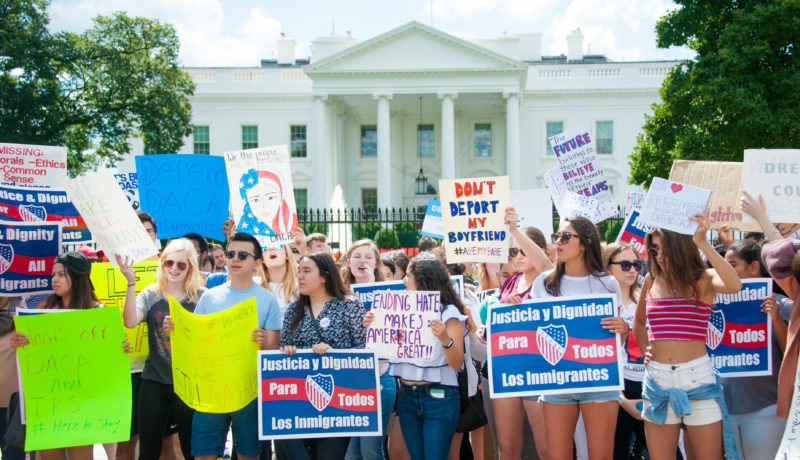
More than 2.3 million undocumented immigrants in the United States arrived as children, grew up here, and consider the United States their home. Their lack of legal status and work authorization have prevented these young immigrants, Americans in all but paperwork, from pursuing their dreams and realizing their full potential.
Congressional Paralysis
Eighteen years ago, a bipartisan bill was first introduced in Congress to resolve this dilemma by granting them legal immigration status and enabling them to earn U.S. citizenship. Different versions of this legislation, known as the DREAM Act, have been introduced every Congress since 2001. The bill has passed the House of Representatives twice (2010 and 2018) and the Senate twice (2006 and 2013), but has never been adopted by both chambers during the same Congress.
Confronted with the congressional paralysis that had left these young immigrants in perpetual limbo, the Obama administration stepped into the breach in June of 2012 and announced the Deferred Action for Childhood Arrivals (DACA) program. Mirroring the DREAM Act’s provisions at that time, DACA enabled immigrants who arrived before age 16 and had lived here since 2007 to apply for protection from deportation and work permits if they passed background checks and met other requirements.

Supreme Court DACA Case Hearing on November 12, 2019
From DREAM Act to DACA
The DACA program has been transformational for the recipients — and for the country. Since its inception, 825,000 program recipients living in all 50 states have been afforded the opportunity to continue their studies and work lawfully in an array of fields. Their ability to move into jobs more aligned with their education and receive training has led to an 86% increase in their average hourly wages. These wage increases and legal status changes have enabled nearly 60,000 to purchase homes; 60% bought their first cars after receiving DACA; and they are contributing billions in federal, state, and local taxes each year.
Trump Terminates DACA
Two years ago, however, President Trump and Attorney General Sessions moved to terminate the program, declaring DACA to be unlawful. With the lives and futures of hundreds of thousands of young Americans hanging in the balance, lawsuits were swiftly filed to prevent DACA’s termination.
Three federal district courts agreed with the plaintiffs that the administration’s justification for ending the program was either legally flawed or insufficiently explained. Those courts issued nationwide temporary injunctions, blocking termination of the program for those already enrolled. While protecting current DACA recipients, these judicial reprieves stopped short of authorizing applications for individuals who had not yet received DACA.
All eyes on Supreme Court
After nearly two years of litigation, the government’s appeal of these injunctions has now made its way to the Supreme Court, which will hear arguments on November 12.
The stakes could not be higher. A recent survey of DACA recipients (who, on average, arrived here at age seven and have lived in the United States for 20 years), highlights the depth of their fear about being returned to their countries of birth. Some 93 percent reported concerns about “physical safety, health care, education, food security, or risk of homelessness.”
Termination of the program is also at odds with its overwhelming support by the American public. Experts and stakeholders from every part of civil society are lining up and submitting “friend of the court” briefs arguing that DACA has advanced our economic, social, civic, and security interests.
In a polarized country, the benefits of DACA generate a rare consensus. Although we don’t know how the court will rule, we can be sure that if it sides with the Trump administration, America will lose.
In a polarized country, the benefits of DACA generate a rare consensus.
